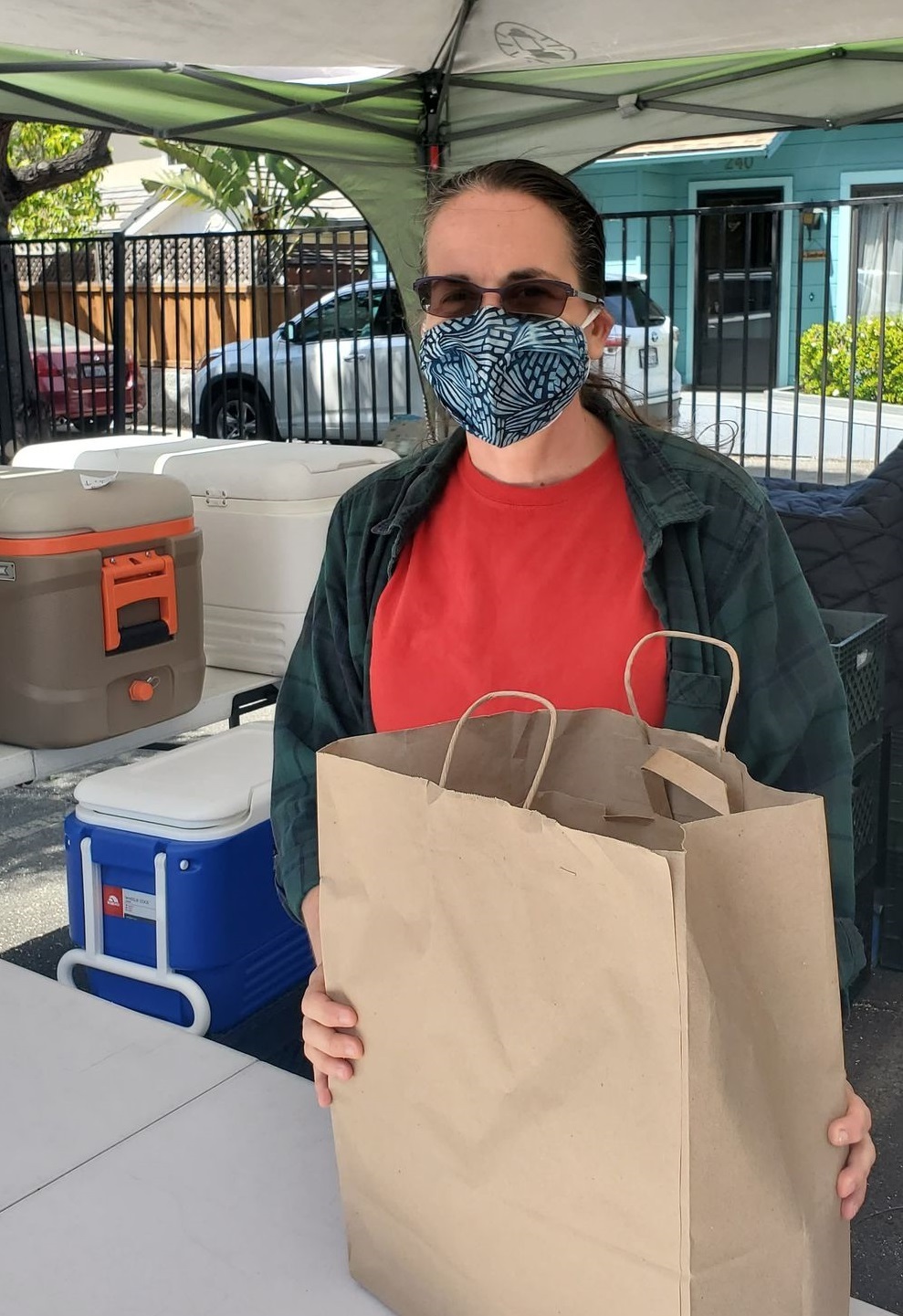
People – Passion – Professionalism: Staff experiences during the pandemic
Christine Flego, Food & Nutrition Program Director
What do you like best about your job?
Knowing that our services are helping to make a difference for our clients in their daily lives. Food plays such a vital role in a person’s overall well being physically, mentally and emotionally. My job allows me to not only help fill the gaps of food insecurity, but also to have a part in some small way of keeping folks healthy.
What was it like working at CSA this past year during the pandemic? How did your job change? How did you flex, pivot and stretch to meet increasing client and/or agency need?
2020 alternated between feeling overwhelming and never ending … and watching the days go by in a blink of an eye. The FNC has always been a busy little corner in the agency. When the pandemic started, there were no spare moments of down time for any staff. March 16, 2020 marked a critical turn in operations for FNC, becoming the day the pantry officially halted in-person client shopping and stopped “taking the shop on the road” as our mobile operations ceased with the announcement of a mandated lockdown.
The phone calls started and emails flooded in as our volunteers, many of them in at-risk categories, were no longer able to assist. FNC went from staffing of 100+ individuals a week to literally less than 10 people, all CSA staff. The tents and tables in our parking lot became our “new pantry.” The big questions for all of us was figuring out how to continue to feed hundreds of households each week … and how to source enough food to do so? And then, there was the big question lurking in the back of everyone’s mind – how do we do all this safely for everyone?
My days were spent, sleeves rolled up, bagging groceries alongside the FNC team, sorting produce, restocking chickens, moving full racks of food across the parking lot, manning the lines during distribution to enforce safety protocols. Evenings became the only time to catch up on emails, volunteer schedules, and paperwork.
I went from attending a couple meetings a month to almost daily updates on Zoom with CSA management, as well as other Emergency Assistance Network organizations and partner agencies. Everyone was asking the same question – “What do you all need?” The CSA offices quickly emptied except for the group who came to be known amongst us as the “skeleton crew” – these same dozen faces over the months immediately following lockdown became our internal support system. We all knew the stresses of the growing client lists. We all saw the mounting fatigue setting in and we could read the emotions in one another’s eyes even passing 6 foot away in the hall. Despite all that, NO ONE dropped the ball – there were literally too many people counting on us!
Was there a seminal moment/incident during this past year when you realized just how much the pandemic is/was impacting your clients and/or workload?
For me there were a few. Probably one of the biggest moments happened at the start of lockdown, the morning immediately following the mandate. I was in the CSA parking lot with a tape measure in one hand and a roll of brightly colored masking tape in the other. I found myself at the entrance into the lot looking towards the trees in the back and the vast amount of black pavement in front of me. I had to transform this space into a working, more importantly safe space, for our clients, our volunteers, and for my staff. I remember thinking of how many changes would be needed and how would we be able to do all this? The green canopy tents, orange cones, and yellow caution tape soon became the new “normal” for our clients and staff.
What was not feeling normal were the lines. Even under the masks, you could read the concerns of many of our clients. The faces of our clients quickly changed each distribution. Suddenly we were seeing parents or grandparents with children in tow standing in line patiently waiting their turn to pick up a food bag. Gone were the days of allowing for our clients to enter the pantry and freely shop for groceries. Now they were met by staff and volunteers directing them in one gate, through a line at a tent, and out another gate. All while I felt like a broken record at times, reminding folks of six foot distancing and waving the next client in for service.
Our most vulnerable senior clients were sheltered in place and concerns shifted to how do we get food to them and how do we make sure they are not feeling isolated or alone during these times. Senior Services case managers soon became the new mode of delivery, taking on the task of weekly bagging and delivery to what once was less than two dozen to at one point almost four times that number.
Six months into the pandemic and fire season was upon us. This was the first time since the pandemic started that I began questioning the sustainability of our operations. I found myself once again outside in the parking lot with tape measure in hand, but this time I was staring into a hazy doomsday looking sky. I never thought about air quality indexes and suddenly I was installing multiple apps on my phone to get the most accurate number for our location. AQI became the newest buzz word around the office.
On top of now weekly program updates under COVID, we were all talking about emergency operations to support fire impacted areas if needed and operations under the current weather conditions. While always being safety minded from the start of the pandemic, now I was also tasked once again with the reminder of the few hundred people from clients, volunteers, and staff, that the daily decisions of proceeding with operations meant. I was challenged again with streamlining an already small crew of program staffing to even a smaller number- only those who we really needed to be out in these conditions. The FNC staff and volunteers found themselves now not only being asked to wear a mask, but now being asked to wear an N-95 mask for the duration of their shift. Sounds simple enough, until you are repeatedly moving a few hundred pounds.
What keeps you going at work during times of great uncertainty … like COVID-19?
It is remembering that everyone has a story and everyone at some point in their journey may need a helping hand. I have the ability to be doing work that allows me the opportunity to be the helping hand for someone with something even as simple as a bag of groceries. I think about a senior unhoused client who relies on that can of soup we provide for his next meal and it motivates me to want to be able to do more for clients like him and others. I am reminded of the unseen smiles under the masks from so many of our clients. I recall the moments of watching a young mother with her preschooler wanting to help carry their groceries as they left and I could hear the little girl say “thank you” – that child became a big part of why I do this work.

